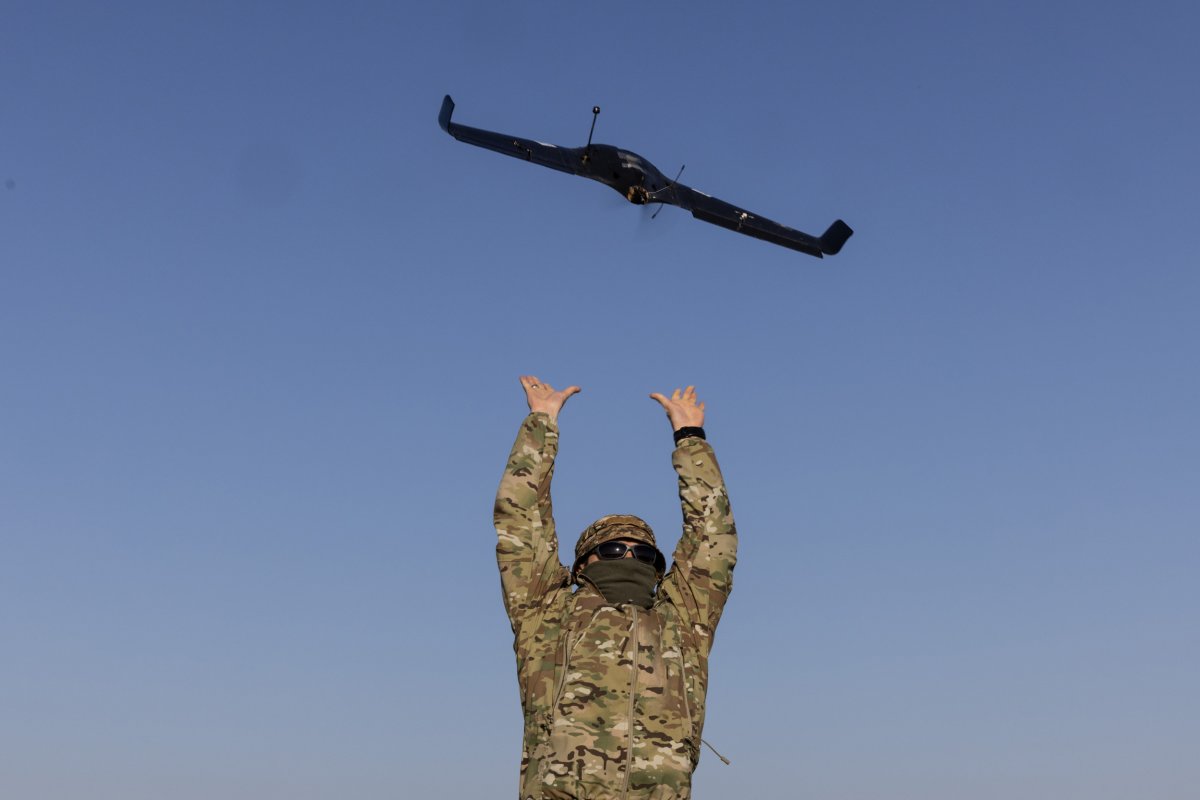Russian oil refineries saw a loss in operations for January partly because of drone attacks, according to a report from a Russian state-controlled media outlet.
The Moscow-based Kommersant newspaper on Tuesday reported that Russian oil refineries reduced refining operations by 4 percent last month, citing "increased drone attacks" as at least part of the reason for the change.
During January, drone strikes hit oil depots and refineries in multiple Russian regions, including Bryansk, Leningrad and Oryol. Russian officials have claimed Ukraine has been targeting the country's energy infrastructure with drone assaults, though Kyiv rarely accepts responsibility for attacks on Russian territory.
Kommersant wrote that a January 25 fire at an oil refinery in the town of Tuapse in Russia's Krasnodar Krai region resulted in a 30 percent decrease in output. Russian media reported after the fire that local residents said they saw multiple drones flying over the area before the fire broke out.

According to Kommersant, the incident at the Tuapse refinery contributed to the energy company Rosneft experiencing a 10 percent decrease in oil refining from the same period last year.
Newsweek reached out to the Russian Ministry of Foreign Affairs via email on Tuesday for comment.
Bloomberg reported that before the fire, the Krasnodar Krai refinery had processed over 180,000 barrels per day of crude oil in the first 17 days of January, equating to more than 3 percent of Russia's total crude-processing volume.
On X (formerly Twitter), the Tendar open-source intelligence channel said on January 25 that the alleged strike on the Tuapse facility "removes all doubt that we are dealing with a targeted effort to eliminate all major Russian oil and gas ports, so that they are rendered useless for any operations."
"This will be a big headache for the Russian war effort. The current attacks are still small in size, using a handful of drones, but already caused considerable damage," the message added. "When Ukraine starts mass-hitting those ports, then the Russian air defense will not be able to stop the outcome, even when destroying 99% of all drones."
Alleged Ukrainian strikes are still ongoing on Russian oil assets. Local authorities reported a downed drone started a fire at an oil refinery in Russia's Volgograd region on February 3.
On Tuesday, Ukrainian troops were involved in what the country's defense ministry said was a successful operation on a Russian drilling platform off the coast of Crimea.
Russia's armed forces had reportedly installed radar and equipment used to enhance drone signals on the platform. In a message posted on Telegram, Ukraine's Special Operations Forces said a unit of its troops took the Russian equipment before installing mines on the platform, which were later detonated.
Uncommon Knowledge
Newsweek is committed to challenging conventional wisdom and finding connections in the search for common ground.
Newsweek is committed to challenging conventional wisdom and finding connections in the search for common ground.
About the writer
Jon Jackson is an Associate Editor at Newsweek based in New York. His focus is on reporting on the Ukraine ... Read more
To read how Newsweek uses AI as a newsroom tool, Click here.








